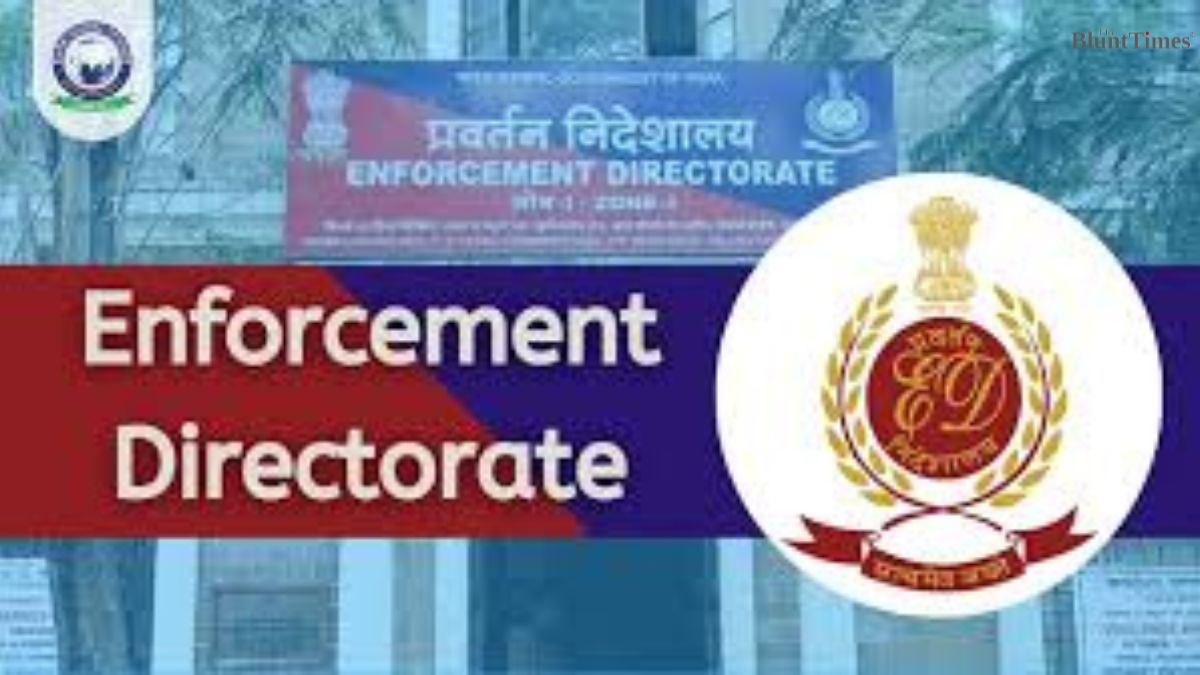ED Raids Across Gujarat in Multi-Crore GST Scam
The alleged multi-crore scam, which was dismantled by the Ahmedabad crime branch, involved 220 fake companies by the accused involving The Hindu Journalist Mahesh Langa and has raised serious concerns about potential money laundering and misuse of sensitive information

Advertisement
Ahmedabad : Directorate of Enforcement (ED), Ahmedabad has conducted searches at 23 premises located at Ahmedabad, Bhavnagar, Junagarh, Veraval, Rajkot, Surat, Kodinar, all located in the state of Gujarat in a Money Laundering Case registered against M/s Dhruvi Enterprises and others.
The alleged multi-crore scam, which was dismantled by the Ahmedabad crime branch, involved 220 fake companies and has raised serious concerns about potential money laundering and misuse of sensitive information.
The Ahmedabad crime branch’s investigation exposed a web of fraudulent activities orchestrated through dummy companies. Initial findings suggest that these companies were created with the intention of facilitating money laundering, prompting law enforcement to coordinate efforts with other regulatory bodies. “We have shared case details with the ED and the Income Tax Department, as the accused appear to have created dummy companies for money laundering purposes,” said a senior police officer. Following these developments, the ED has begun a preliminary inquiry and is expected to register an Enforcement Case Information Report (ECIR) soon.
A case has been registered by Ahmedabad crime branch of Gujarat police on receipt of a reference from Directorate General of GST Intelligence (DGGI) for thorough investigation into creation of more than 200 shell entities by a group of organized criminals in order to fraudulently receive and pass on the input tax credit at the strength of Bogus invoices without supply of any goods or services.
In the instant FIR, the complaint sent by DGGI to the Gujarat Police reveals that they conducted the analysis of common identifiers (Mobile No., Email Id and PAN Nos.) used in six registrations for the PAN number of a shell entity, namely, M/s Dhruvi Enterprises, which suggested that these common identifiers were primarily linked with creation/ registration of 34 GST registrations out of which 11 firms were registered in Gujarat.
The analysis further suggested that the common identifiers such as PAN, Mobile No. Email ids of these 34 GST registrations were further involved in registration/ creation of another 186 GST Registrations (50 registrations in Gujarat). It is pertinent to know that all these primary 36 GST registrations as well as 186 additional registrations are cancelled as of date. Thus, it appears that an organized web of fake/shell entities is being operated by the accused persons involving more than 200 such firms, thus, passing on the fraudulent input tax credit to the tune of crores of rupees to ineligible firms.
Involvement of High-Ranking Officials
A significant aspect of the investigation revolves around “sensitive” communications allegedly exchanged between high-ranking IAS and IPS officers and the Hindu journalist Mahesh Langa. Langa is currently under police custody for ten days as the probe continues. Authorities are examining whether any benefits were exchanged for the information he allegedly shared. According to a police source, “Most of these officials hold important positions in the state government. We will scrutinize whether benefits were exchanged for trading this information since no articles related to the documents were published.”
The case has further intensified after reports indicated that Ahmedabad Police Commissioner G.S. Malik personally interrogated Langa. Malik’s questioning reportedly focused on Langa’s interactions with various bureaucrats, senior police officials, and business figures, seeking to determine the extent of his involvement in the information exchange.
Social Media Buzz and Political Implications
The investigation has also sparked discussions on social media. Abhijit Iyer Mitra, a Senior Fellow at the Institute of Peace and Conflict Studies, tweeted about the case, claiming that Langa was involved in sharing sensitive documents on critical infrastructure with the media cell chief (MCC) of a major opposition party. Mitra’s tweets suggested that these documents were never intended for publication but were instead being used for political purposes.
“Langa was peddling sensitive documents on critical infrastructure which never made it to The Hindu. Instead, they were shared with the media cell chief (MCC) of a major opposition party. WhatsApp conversations reveal that Langa was not only sharing these documents but also drafting the statements that the MCC was putting out + what MCC should or should not say at the presser. Police say these docs were also peddled for consideration to corporates & that they have the entire WhatsApp trail,” Mitra’s tweet read. He further claimed that several bureaucrats from Gujarat are implicated in the case and that their names may be made public soon.
Wider Impact on State Bureaucracy
The case has led to unease within Gujarat’s bureaucracy, as several high-ranking officials are suspected of being involved. Sources have suggested that these individuals might have engaged in information exchanges for personal or political gains, a serious allegation that could lead to further legal action if proven. “If police are to be believed, then several people in the Hindu chain of command were aware the documents were in Langa’s possession and being forwarded in return for money and/or political brownie points – but plausibly did not pass it up to top management as per police sources,” added Mitra’s tweet.
Advertisement

